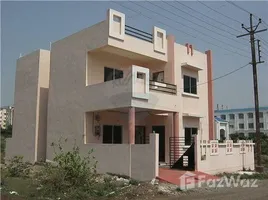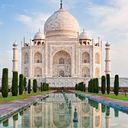- List your property - it's free
- Sign up or Log in
-
English- en
-
INR - ₹
- Buy
- Rent
- India Property For Rent
- India Market Overview
- See Newest Rentals
- List your Rental
- Sell
- Projects





























 Don't miss out!
Get notified when new properties for sale are listed in India
Don't miss out!
Get notified when new properties for sale are listed in India
















































































































Learn more about the India property market through trends and average prices.

India is a vast and fascinating country with a rich history and culture. It is home to one of the world's oldest civilizations, including the Indus Valley Civilization (which dates back to 2500 BCE) and the Vedic period (1500-500 BCE), and its people have made significant contributions to art, literature, science, and technology. India is a federal republic governed under a parliamentary system and consists of 29 states and 7 union territories. India is also a land of great diversity, with over four hundred different languages spoken and 1.3 billion people from a wide variety of ethnic and religious backgrounds. Hindi and English are the official languages of the central government. The country's cuisine is just as diverse, with curries, spices, and other flavors that are sure to tantalize your taste buds. Despite its vast size, India remains a relatively poor country, with many of its citizens living in poverty. In recent years, however, the Indian economy has been growing rapidly, and India is now considered an emerging superpower. It has the world’s fourth largest economy by nominal GDP and the third largest by purchasing power parity. With its large population and growing economic clout, India is poised to play an increasingly important role on the global stage. Whether you're interested in its ancient temples or its vibrant cities, India is a truly unique country that is well worth exploring.
India is a country of many contrasts, with a rich history and a bright future. From the bustling streets of Mumbai to the snow-capped Himalayas, there is much to explore in this vast country. Here are just a few of the most popular areas in India:
The Taj Mahal is one of the most iconic buildings in the world, and a visit to this magnificent marble mausoleum is an unforgettable experience. Situated in the city of Agra, the Taj Mahal was built by Emperor Shah Jahan in memory of his late wife Mumtaz Mahal. Today, it is one of the most popular tourist destinations in India.
Delhi is the capital city of India and is home to more than 16 million people. With its mix of old and new, Delhi has something for everyone. From ancient monuments like the Red Fort to modern shopping malls, there is something to see and do at every turn.
Mumbai, formerly known as Bombay, is the largest city in India and one of the most populous cities in the world. A melting pot of cultures, Mumbai is a bustling metropolis with a unique vibe. From glitzy Bollywood movie stars to humble street vendors, Mumbai is a city full of surprises.
The Himalayas are a breathtaking mountain range that spans several countries, including India. Home to some of the tallest mountains in the world, including Mount Everest, the Himalayas offer endless opportunities for adventure. From trekking and mountaineering to simply taking in the stunning views, a trip to the Himalayas is an unforgettable experience.
India is a vast country with a diverse range of landscapes, climates, and cultures. As a result, the types of property available for purchase can vary widely. However, the most common type of property in India is residential property. This includes both apartments and houses, which are typically purchased by families or individuals. Commercial property, such as office buildings and retail spaces, is also fairly common, although it is usually less expensive than residential property. Industrial property, such as factories and warehouses, is less common but can be found in some areas. Agricultural land is also available for purchase in India, although it typically makes up a small percentage of total property sales. No matter what type of property you are looking for, you are sure to find it in India.
India is a land of contrasts, and this is especially true when it comes to lifestyle factors. On the one hand, there is a large population of rural people who live in poverty and lack basic amenities. On the other hand, there is a growing middle class that enjoys many of the same lifestyle advantages as people in developed countries. This disparate lifestyle can be attributed to a number of factors, including India's caste system, economic development, and religious beliefs.
The caste system is one of the most significant factors influencing lifestyle in India. The four main classes are the Brahmins (priests), Kshatriyas (warriors), Vaishyas (traders), and Shudras (labourers). Each class has distinct lifestyles and customs that are passed down from generation to generation. For example, the Brahmins are typically vegetarian and do not drink alcohol, while the Kshatriyas are allowed to eat meat and drink wine. This rigid social structure means that people's lifestyle choices are often predetermined by their caste.
Economic development is another important factor influencing lifestyle in India. In recent years, there has been a dramatic increase in the number of people moving from rural to urban areas in search of work. This migration has led to a change in lifestyle for many Indians, as they are exposed to new ideas and ways of life. Additionally, economic development has resulted in a growth in the middle class, who have more disposable income and can afford luxuries such as cars and foreign holidays.
Finally, religious beliefs also play a role in shaping lifestyle choices in India. Hinduism is the dominant religion, and it teaches that all living things are connected and must be respected. This belief leads many Hindus to follow a vegetarian diet, as they do not want to cause harm to animals. Additionally, Hinduism places great importance on family life, which often shapes how people spend their leisure time. For example, many families spend Sunday mornings attending religious ceremonies together.
Taken together, these factors reveal that there is no single "Indian lifestyle." Instead, there is a rich tapestry of different lifestyles that are influenced by factors such as caste, economic development, and religious belief.
India is one of the most popular destinations for property investment. Here are four reasons why:
1) Property values in India are on the rise. In recent years, there has been a growing demand for property in India, thanks to the country's strong economic growth. This has led to a sharp increase in prices, making now an ideal time to invest.
2) There is a wide range of India property for sale. Whether you're looking for a luxurious apartment or a more affordable options, you're sure to find something to suit your needs.
3) India offers a number of attractive tax incentives for property investors. For example, there is no capital gains tax on profits made from selling property. This makes India an especially attractive destination for those looking to generate rental income.
4) The Indian government is committed to improving the country's infrastructure. This includes plans to develop new airports, highways, and rail links. This investment will further boost the demand for property in India, leading to even higher prices.
If you're considering investing in property, India is an excellent option. Thanks to its strong economy and growing demand, it offers great potential for capital growth. With a wide range of properties available and attractive tax incentives, now is an ideal time to invest in India property.
There is no simple answer to the question of whether or not a foreigner can buy property in India. The Indian government has put in place a number of restrictions and regulations that govern foreign ownership of property, and these rules can be complex and confusing. However, it is possible for foreigners to purchase property in India, provided they meet all the necessary requirements. These requirements include obtaining approval from the Reserve Bank of India, as well as having a valid visa and sufficient funds. In addition, foreigners may only purchase property that is designated as "residential" or "commercial", and they must submit to a number of documentary requirements. As such, while it is possible for foreigners to buy property in India, the process can be complicated and time-consuming.
In India, the cost of a house can vary widely depending on the location, size, and quality of the property. In major cities like Mumbai and Delhi, prices start at around $100,000 and can go up to $1 million or more for luxury homes. In smaller cities and towns, prices are typically much lower, starting at around $20,000. However, it is important to note that the cost of living in India is relatively low, so even a luxurious home will not be as expensive as it would be in many other countries. In addition, there are a number of government initiatives designed to make housing more affordable for low- and middle-income families. As a result, the cost of a house in India is often much more manageable than one might expect.
It is no secret that property prices in India have been on the rise in recent years. However, there are still some places where property is relatively affordable. For example, the state of Jharkhand has some of the lowest land prices in the country. As a result, it is a popular destination for those looking to buy property on a budget. Similarly, the city of Pune has also seen a decrease in property prices in recent years. This is due to a number of factors, including an increase in the supply of housing and a slowdown in the city's economy. As a result, Pune is another good option for those looking for cheap property in India.
There is no easy answer when it comes to buying property online in India. While there are a number of websites that claim to offer online property services, the reality is that most of these sites are nothing more than listings platforms. In other words, they simply provide a space for sellers to post their properties for sale. As a result, it can be very difficult to find reliable information about properties available for sale online. And even if you do find a property you're interested in, you'll likely need to contact the seller directly to get more details. That said, there are a few companies that are beginning to offer more comprehensive online property services in India. These companies typically work with a network of local real estate agents and allow buyers to search for properties and schedule viewings online. While still in its early stages, this type of service could eventually make it easier to buy property online in India.